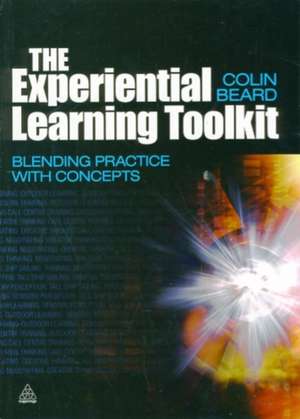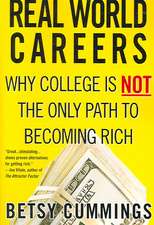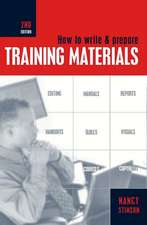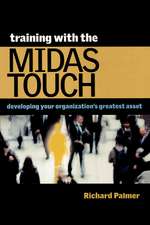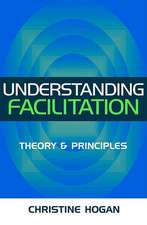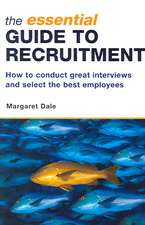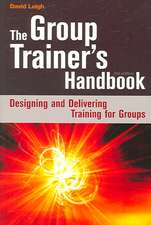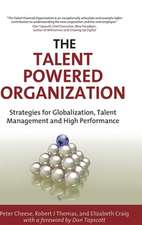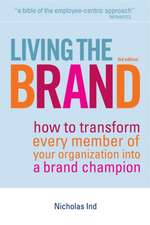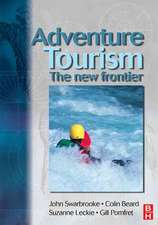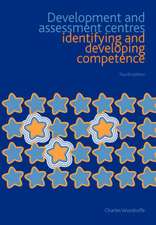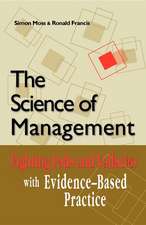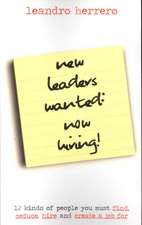The Experiential Learning Toolkit – Blending Practice with Concepts
Autor Colin Bearden Limba Engleză Paperback – 2 iul 2010
The Experiential Learning Toolkit presents a very diverse range of practical exercises, which are based on the major theories of experiential learning. By being routed in the core principles of this method of learning, the activities create more engaging, effective and embedded learning.
The author has compiled more than 30 internationally tried and tested learning "experiences", which cover corporate training, individual and organizational development and education. Each experiential activity includes the essential practical information required to deliver the exercise. As well as design tips and further reading there are clear titles for each activity that highlight the underpinning core theoretical concepts. The coverage includes a wide range of training needs and topics including: effective customer service training and telephone skills; outdoor learning, including service learning; negotiating and assertiveness skills; strategic and higher level thinking; effective presentation skills; developing innovative and creative minds.
Trainers will find this an invaluable resourse, with fresh approaches that will engage and inspire learners.
The Experiential Learning Toolkit is a companion text to the internationally best-selling Experiential Learning by Colin Beard and John Wilson (also published by Kogan Page).
The author has compiled more than 30 internationally tried and tested learning "experiences", which cover corporate training, individual and organizational development and education. Each experiential activity includes the essential practical information required to deliver the exercise. As well as design tips and further reading there are clear titles for each activity that highlight the underpinning core theoretical concepts. The coverage includes a wide range of training needs and topics including: effective customer service training and telephone skills; outdoor learning, including service learning; negotiating and assertiveness skills; strategic and higher level thinking; effective presentation skills; developing innovative and creative minds.
Trainers will find this an invaluable resourse, with fresh approaches that will engage and inspire learners.
The Experiential Learning Toolkit is a companion text to the internationally best-selling Experiential Learning by Colin Beard and John Wilson (also published by Kogan Page).
Preț: 469.16 lei
Preț vechi: 527.14 lei
-11% Nou
Puncte Express: 704
Preț estimativ în valută:
89.80€ • 93.39$ • 75.25£
89.80€ • 93.39$ • 75.25£
Carte tipărită la comandă
Livrare economică 13-27 martie
Preluare comenzi: 021 569.72.76
Specificații
ISBN-13: 9780749450786
ISBN-10: 0749450789
Pagini: 288
Dimensiuni: 170 x 342 x 19 mm
Greutate: 0.48 kg
Editura: Kogan Page
ISBN-10: 0749450789
Pagini: 288
Dimensiuni: 170 x 342 x 19 mm
Greutate: 0.48 kg
Editura: Kogan Page
Cuprins
Figures and tables
Preface
Introduction
Part 1 The first dimension: belonging
Introduction
1.1 Just four steps: customer service and customer complaints
1.2 Coffee and papers: positive mood and reading retreats for learning
1.3 Edventure: learning encounters with people and place
1.4 Different ways to know: spatial mapping of knowledge
1.5 Listening to silence: experiencing silence through sensory focus
Part 2 The second dimension: doing
Introduction
2.1 Bike it! : teams, leadership and communication
2.2 Altering reality: negotiating skills development
2.3 Read all about them: an experience to develop writing skills
2.4 Antiques Roadshow: developing product expertise in employees
2.5 Hearing voices: voice work for reception and call-centre training
Part 3 The third dimension: sensing
Introduction
3.1 Brand sense: the role of senses in brand development
3.2 Blindfold: communication and the senses
3.3 Shape and colour: using the senses to generate conversations about learning and personality
3.4 The rucksack and the fleece: effective presentations
3.5 Nuts and bolts: systematic thinking – classifying and organizing
Part 4 The fourth dimension: feeling
Introduction
4.1 Ace of spades: space for reflection
4.2 Accessing emotions: popular metaphors
4.3 Reframing, rewriting, rethinking: the emotions of fear and risk
4.4 Unfinished statements: sentences that access the feeling dimension
4.5 String lines: exploring journeys in life
Part 5 The fifth dimension: knowing
Introduction
5.1 The marketplace: developing creativity and innovation
5.2 How to get to…: developing higher thinking
5.3 The Singapore obelisk: multiple intelligence (logical/mathematical)
5.4 Skills for researching and consulting: practitioner-researcher training
5.5 Walk the talk: learning to understand complexity
Part 6 The sixth dimension: being
Introduction
6.1 Cards on the table: learning to change by playing cards
6.2 Comic strips and newspapers: reflection and change using storylines
6.3 Behavioral awareness: changing individual and group behavioral interactions
6.4 Service learning: social and environmental responsibility
6.5 Unmasking: the hidden and unknown self
Index
Preface
Introduction
Part 1 The first dimension: belonging
Introduction
1.1 Just four steps: customer service and customer complaints
1.2 Coffee and papers: positive mood and reading retreats for learning
1.3 Edventure: learning encounters with people and place
1.4 Different ways to know: spatial mapping of knowledge
1.5 Listening to silence: experiencing silence through sensory focus
Part 2 The second dimension: doing
Introduction
2.1 Bike it! : teams, leadership and communication
2.2 Altering reality: negotiating skills development
2.3 Read all about them: an experience to develop writing skills
2.4 Antiques Roadshow: developing product expertise in employees
2.5 Hearing voices: voice work for reception and call-centre training
Part 3 The third dimension: sensing
Introduction
3.1 Brand sense: the role of senses in brand development
3.2 Blindfold: communication and the senses
3.3 Shape and colour: using the senses to generate conversations about learning and personality
3.4 The rucksack and the fleece: effective presentations
3.5 Nuts and bolts: systematic thinking – classifying and organizing
Part 4 The fourth dimension: feeling
Introduction
4.1 Ace of spades: space for reflection
4.2 Accessing emotions: popular metaphors
4.3 Reframing, rewriting, rethinking: the emotions of fear and risk
4.4 Unfinished statements: sentences that access the feeling dimension
4.5 String lines: exploring journeys in life
Part 5 The fifth dimension: knowing
Introduction
5.1 The marketplace: developing creativity and innovation
5.2 How to get to…: developing higher thinking
5.3 The Singapore obelisk: multiple intelligence (logical/mathematical)
5.4 Skills for researching and consulting: practitioner-researcher training
5.5 Walk the talk: learning to understand complexity
Part 6 The sixth dimension: being
Introduction
6.1 Cards on the table: learning to change by playing cards
6.2 Comic strips and newspapers: reflection and change using storylines
6.3 Behavioral awareness: changing individual and group behavioral interactions
6.4 Service learning: social and environmental responsibility
6.5 Unmasking: the hidden and unknown self
Index
Recenzii
"...Beard...presents 30 learning "experiences" (i.e. activities) that educational and training practitioners can put to use to promote learning on a wide range of topics, including service learning, corporate social responsibility, customer service skills, company product knowledge retention, strategic thinking and negotiating, financial skills, time management, and the development of innovation and creativity."
-- Book News Inc.
-- Book News Inc.
Notă biografică
Colin Beard is a Fellow of the Royal Society of Arts. He is a National Teaching Fellow at Sheffield Business School, Sheffield Hallam University. He is also a learning and development consultant, working internationally with many clients in corporate organizations, higher and further education and adult education.
Descriere
Beard follows his successful "Experiential Learning" with this diverse range of practical exercises based on learning through direct experience. Each activity includes a description of the underlying principles, practical information on delivering the exercise, and tips and further reading.
